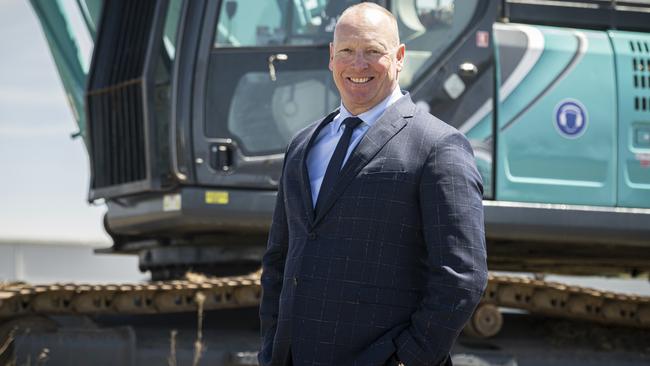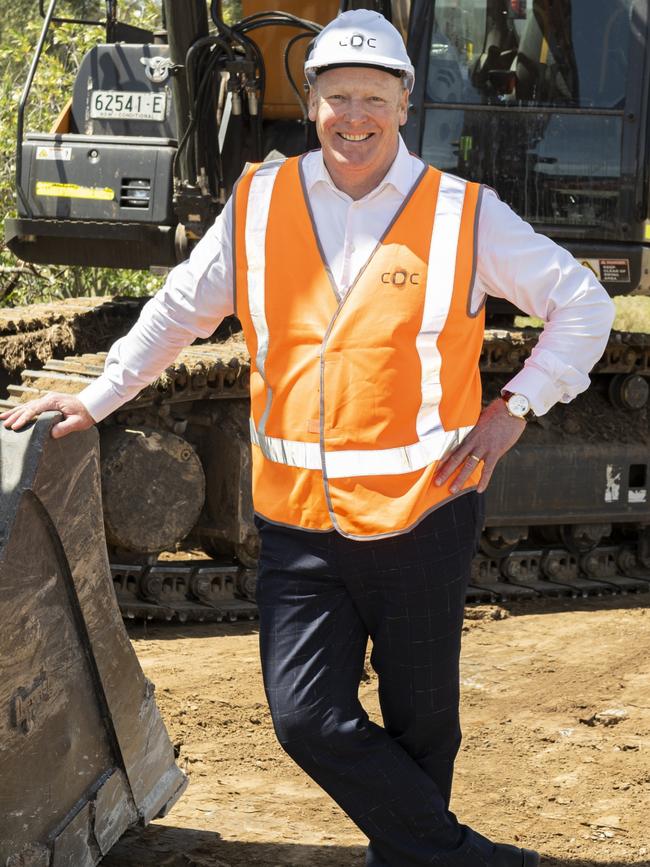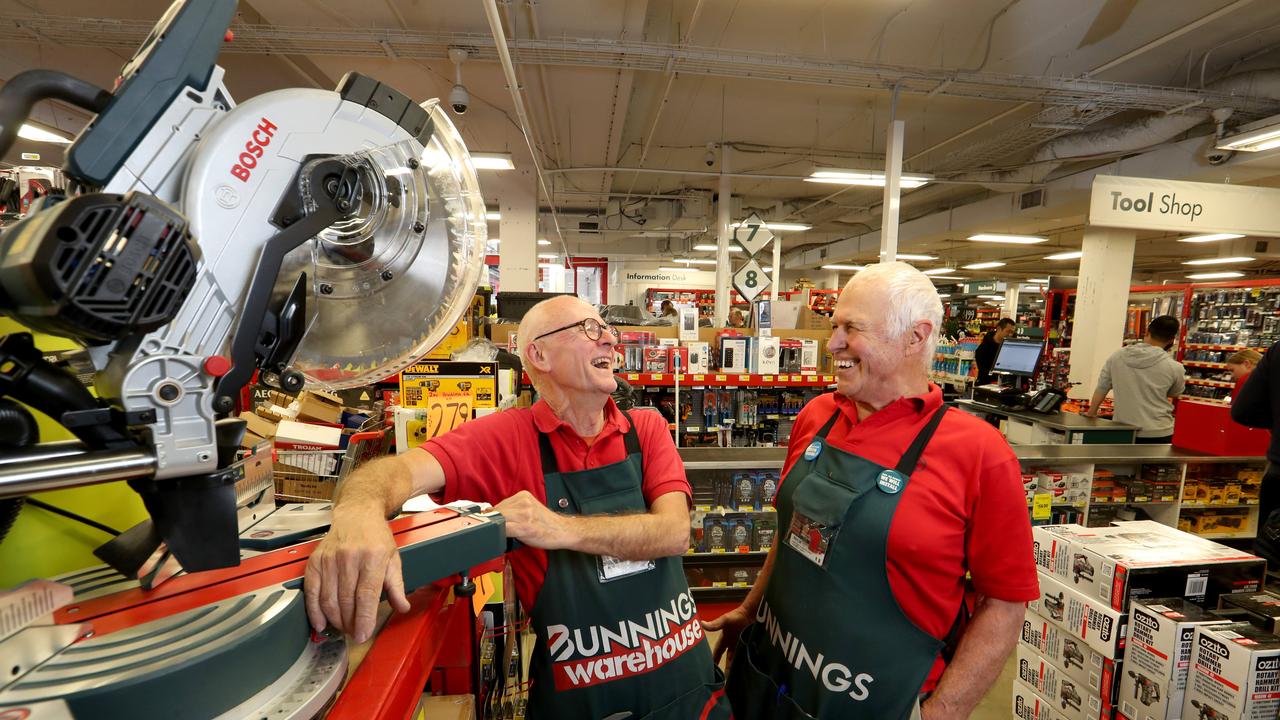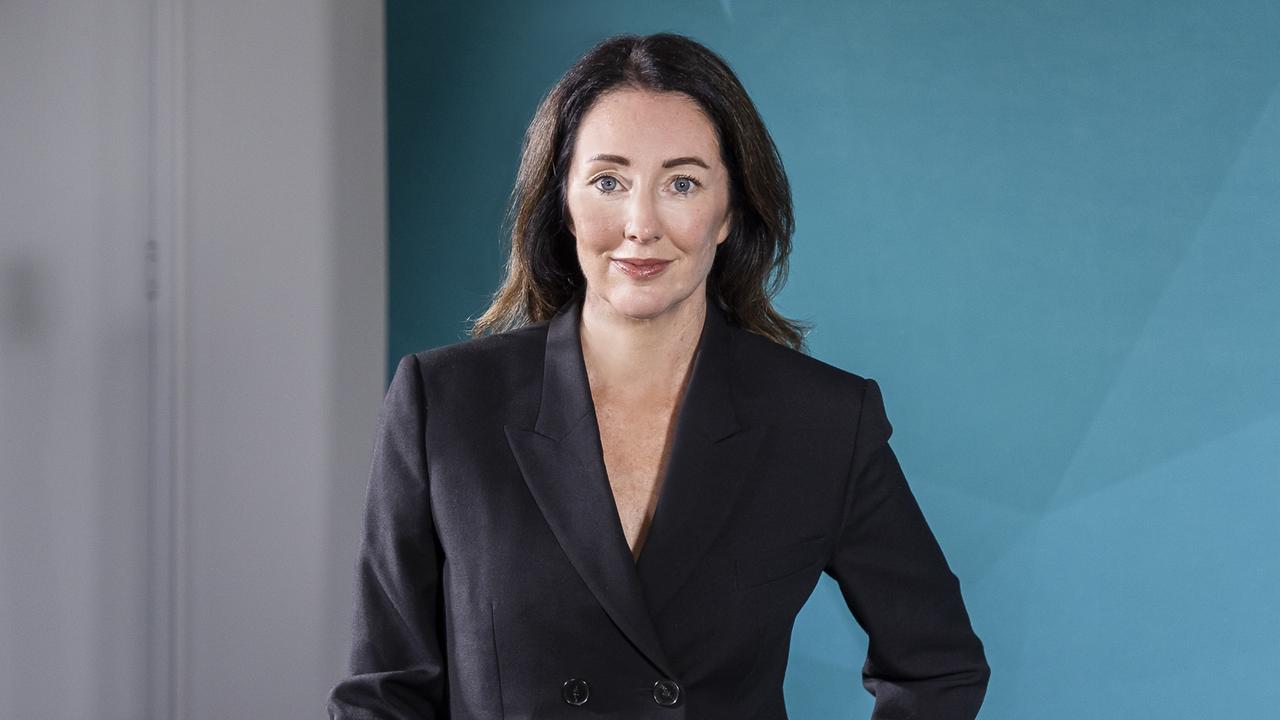CDC founder Greg Boorer rockets up the rich list after 12pc stake sold to Future Fund, Infratril
A quiet tech founder from Newcastle is now up among the nation’s richest after a huge data centre share sale means his company is valued at $17bn.

Business
Don't miss out on the headlines from Business. Followed categories will be added to My News.
A little known tech entrepreneur has become one of the nation’s richest overnight, with his stake in data centre developer and operator CDC reaching $622m after the company was valued at $17bn.
Greg Boorer has shot up the ladder of Australia’s wealthiest after Commonwealth Superannuation Corporation (CSC) agreed to sell half of its stake – 12.04 per cent – in CDC to Future Fund and Infratril for just over $2bn.
The transaction, signed on Monday, will see Infratril acquire 1.58 per cent of those shares for $216m while the Future Fund will acquire the remaining 10.46 per cent of that stake.
The deal marks one of the largest data centre transactions in recent months and follows in the shadows of US alternative asset investor Blackstone’s $24bn acquisition of AirTrunk in September last year.
Mr Boorer, who has retained a 3.66 per cent stake in the company he founded in 2007, told The Australian he wouldn’t dream of selling his shares.

“I think you’d be mad to,” he said. “There’s not too many investments in the world that are growing at 30 to 40 per cent … (you) get to be the master of your own destiny,” he said.
Investors the world over have been racing to nab a slice of the growing asset class that spans real estate, technology, digital infrastructure and energy.
The market has showed no signs of slowing except a slight blip last month after the release of DeepSeek’s newest model, which reaped havoc across global markets and saw the share prices of data centre players NextDC and Goodman Group drop around 8 per cent in a single day.
CDC, which has 14 operational data centres across Australia and New Zealand, is expecting to more than double that figure, looking to operate a portfolio of 30 data centres under its 2030 vision, Mr Boorer said.
Those 14 data centres have a capacity of 320 megawatts. Seven more which are expected to go live this year bring its total capacity to 800MW.
“Data centres are the factories of this century and so if there’s a thriving and growing data centre industry, that’s a direct representation of the economic prosperity of that country,” Mr Boorer said.
The deal marks the close of a months-long sale process that began late last year. Canadian pension CDPQ was one of several global investors eyeing CSC’s stake, as was Australian Retirement Trust.
Infratil remains the largest shareholder, with a 49.75 per cent stake, followed by Future Fund at 34.55 per cent and CSC with its remaining 12.04 per cent.
For Infratil, the buyout was strategic, with the company gaining additional governance rights, said chief executive Jason Boyes.
“We remain focused on expanding CDC’s capacity and delivering high-quality digital infrastructure to meet our customers’ growing demand,” he said.
“CDC has been one of our most successful investments, and this increased ownership reinforces our commitment to investing in ‘ideas that matter’. It reflects our strong conviction in CDC and the powerful tailwinds driving digital infrastructure.”
Future Fund chief investment officer Ben Samild said the fund had a key focus on backing modern technology.
“Technological advancement is one of the significant themes we see shaping the investment outlook and we expect data centres to play an important and long-term role in the economy of the future,” he said.
CSC had been the largest shareholder, first buying into the company more than eight years ago but later sold half of that stake in 2019 to Future Fund.
CSC chief investment officer Alison Tarditi said the fund had locked in a return of almost 43 per cent per year since it first backed CDC and that it would use the sale to “recycle capital opportunistically into emerging opportunities with competitive risk-adjusted returns”.
CDC has maintained a relatively low profile over the past 18 years compared to some of its industry counterparts, which Mr Boorer said was largely due to its clients.
“I think it’s the nature of our business and where we’ve come from. A lot of our customers don’t want us to be in the newspaper and they don’t want people to know where their data is,” he said.
“We have spent the last 18 years emptying literally hundreds of server rooms in Canberra into purpose-built, highly secure data centres, which we’ve made the core of our business.”
More Coverage
Originally published as CDC founder Greg Boorer rockets up the rich list after 12pc stake sold to Future Fund, Infratril





